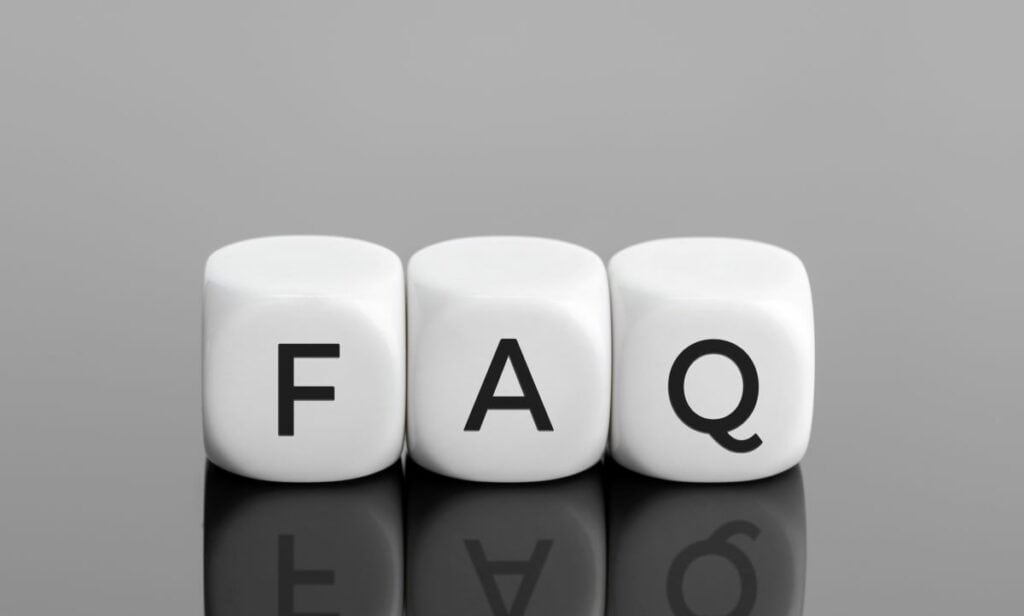Attention Deficit Hyperactivity Disorder (ADHD) and introversion may seem like contrasting traits, yet they can coexist in individuals, creating a unique array of challenges and experiences.
ADHD is characterized by symptoms such as impulsivity, disorganization, and difficulty with sustained concentration. On the other hand, introverts typically derive energy from solitary activities and feel drained from excessive social engagement.
When these traits intersect, individuals may face distinct personal dynamics, causing them to navigate the external world and their internal landscape differently than those who are either solely introverted or have ADHD.
Understanding ADHD and Introversion

Attention Deficit Hyperactivity Disorder (ADHD) and introversion are two distinct dimensions of human behavior and personality that can intersect in complex ways.
This section provides insights into the nature of ADHD, the characteristics of introverted individuals, and how ADHD can manifest in those with introverted personalities.
Defining ADHD
ADHD is a neurodevelopmental disorder characterized by patterns of inattention, hyperactivity, and impulsivity that are inconsistent with developmental levels.
These symptoms can lead to disorganization, restlessness, and challenges in executive functioning.
While hyperactivity is often considered synonymous with ADHD, it is crucial to recognize that the disorder also encompasses inattentive subtypes, where the hyperactive component may be less pronounced or absent.
Exploring Introversion
Introversion is a personality trait typified by a preference for internal thought processes and a tendency to seek less social interaction.
Introverts often refuel their energy by spending time alone, unlike extroverts who gain energy from others.
They may be perceived as reflective or reserved and can have rich internal emotional lives, motivating them to avoid overstimulating social environments.
ADHD Diagnosis and Introverted Personalities
Individuals with ADHD who are also introverted might exhibit less visible symptoms, leading to underdiagnosis or misdiagnosis.
The introverted group with high rates of the ADHD-inattentive subtype may not struggle with traditional hyperactive behaviors but rather with sustaining focus, academic challenges, and internalized impulsive behavior.
Moreover, adults with ADHD tend to exhibit certain personality traits, such as pessimism and introversion, which impact their social interactions and emotional well-being.
Characteristics of ADHD Introverts

ADHD can manifest differently in introverted individuals compared to extroverted individuals. Some characteristics commonly associated with ADHD in introverts include:
Internalized Symptoms
Introverted individuals with ADHD may exhibit internalized symptoms, such as excessive daydreaming, racing thoughts, and difficulty concentrating quietly.
These symptoms may not always be apparent to others, as introverts may be less likely to externalize their struggles.
Social Withdrawal
While introverts may naturally prefer solitary activities over socializing, those with ADHD may experience heightened social withdrawal or isolation due to difficulties in social interactions.
They may struggle with maintaining attention during conversations, following social cues, and managing impulsivity in social settings.
Overstimulation Sensitivity
Introverts with ADHD may be particularly sensitive to overstimulation, both internally and externally.
They may become overwhelmed by sensory input, such as noise, crowds, or visual stimuli, leading to increased distractibility, irritability, and difficulty concentrating.
Hyperfocus Tendencies
While commonly associated with ADHD, hyperfocus can manifest differently in introverted individuals.
They may become deeply engrossed in solitary activities or interests, such as reading, writing, or creative endeavors, to the exclusion of other responsibilities or social interactions.
Internal Pressure to Conform
Introverts with ADHD may feel internal pressure to conform to societal expectations of quietness, attentiveness, and self-control.
This pressure can exacerbate feelings of inadequacy, shame, and self-doubt, as they may perceive themselves as falling short of societal norms.
Social Aspects of ADHD Introverts

Those with ADHD who lean toward introversion experience unique social dynamics.
They often navigate a complex interaction between their need for solitary reflection and the challenges posed by social settings.
Social Interaction Challenges
Individuals with ADHD who are also introverted may find social interaction particularly taxing.
This combination can amplify common social challenges, such as difficulty with attention during conversations, which might lead to misunderstandings.
They may be easily overwhelmed in environments with sensory overload, leading them to retreat into more reserved behavior.
These challenges can contribute to feelings of social anxiety among ADHD introverts, making social engagements appear daunting.
The Importance of Alone Time
Alone time is crucial for introverts with ADHD as it is a period for recovery and reflection. This time spent in solitude is not merely a preference but a necessity for recharging after the mental exertion of social interaction.
It provides space for processing stimuli and experiences, allowing them to cope better with their feelings and maintain a sense of emotional balance.
ADHD Introverts in Social Environments
In social environments, ADHD introverts might seem self-aware and capable of deep, meaningful conversations. However, due to their inner disposition, they could feel drained faster than extroverts or even ambiverts.
While not opposed to being outgoing, such moments are chosen carefully to preserve energy. Their social participation is often selective and intentional, focusing on quality interactions over quantity.
As a coping mechanism, ADHD introverts may gravitate toward settings where they feel understood, often among small groups where the pace of interaction is more manageable, and neurotypical social expectations are less pressing.
Coping Strategies and Management

Effective management of ADHD in introverted individuals involves a multimodal approach that encompasses treatment options tailored to their personality, lifestyle adjustments that prioritize self-care, and professional interventions including therapy and medications.
These strategies aim at improving focus, impulse control, and the management of environmental factors that may affect their ability to recharge.
Treatment Options for ADHD Introverts
Introverts with ADHD may find that treatments focusing on minimizing overstimulation can help manage their symptoms effectively.
Approaches like mindfulness techniques, which include focused breathing exercises and meditation, can assist in calming the mind and enhancing impulse control.
Cognitive-behavioral therapy (CBT) can address ADHD-related challenges by reshaping negative thought patterns and behaviors, turning them into positive actions and outcomes.
Therapists Specializing in ADHD
Lifestyle Adjustments and Self-Care
To reset ADHD symptoms and manage the intensity of the condition, introverts benefit from creating environments that limit unnecessary stimulation. This might entail organizing their space to reduce clutter, which can lead to overstimulation and stress.
Regular breaks to recharge are important; short periods of solitude can help replenish their energy.
Introduction to self-care routines, such as engaging in hobbies or interests that foster a calming effect, is crucial for maintaining an even keel.
Professional Help and Medications
When considering professional help, therapy tailored for individuals with ADHD can be highly beneficial.
Therapists can teach coping mechanisms specifically designed for those who have difficulty with attention and impulse control.
For some, medications might be prescribed to help manage symptoms of ADHD.
The importance of professional guidance is paramount in determining the right medication and dosage, as the consequences of self-medicating can be detrimental to one’s health and well-being.
Comorbid Conditions and Complications

Comorbid conditions often accompany ADHD, posing unique challenges and necessitating comprehensive management strategies.
They can amplify the complexity of symptoms and impact the overall mental well-being of individuals.
Understanding Comorbid Conditions
Comorbid conditions are additional disorders that co-occur with a primary disorder, such as ADHD.
Research indicates that individuals with ADHD may have a higher prevalence of certain comorbid conditions.
For instance, research suggests the comorbidity of personality disorders and ADHD, highlighting how these overlapping challenges can complicate diagnosis and treatment.
Mood disorders, including depression and bipolar disorder, are also frequently seen alongside ADHD.
The causes of these comorbidities are not entirely clear but may include genetic factors and environmental risk factors.
The Impact of ADHD on Mental Health
ADHD can significantly affect mental health beyond the core symptoms of inattention, hyperactivity, and impulsivity.
The presence of comorbid conditions like depression and anxiety disorders is associated with greater functional impairment and may lead to a more complicated clinical presentation.
Bipolar disorder, another potential comorbidity, can create additional diagnostic challenges due to symptom overlap and can further affect the stability of mood in those with ADHD.
Understanding the interplay between ADHD and comorbid conditions is crucial for effective treatment and management.
Frequently Asked Questions

What are common signs of inattentive ADHD in individuals who are introverted?
Introverted individuals with inattentive ADHD often display a quiet, reflective demeanor, and may struggle with maintaining focus during solitary activities or becoming easily overwhelmed in stimulating environments.
These signs are subtly different from more extroverted counterparts who might show outward signs of restlessness.
How does being an introvert affect the management of ADHD symptoms?
Introverts may prefer environments with minimal stimulation, which can help manage ADHD symptoms.
However, they might find the social aspects of some ADHD management strategies, like group therapy, more challenging due to their inherent need for solitude.
Are there specific challenges that introverted males with ADHD face?
Introverted males with ADHD might face social pressures to conform to extroverted norms, often feeling misunderstood for their quieter disposition and potentially overlooked when it comes to their ADHD, as the inattentive symptoms can be less conspicuous than hyperactive-impulsive symptoms.
What strategies are effective for introverts with ADHD in the workplace?
Introverts with ADHD may benefit from a structured routine, clear goals, and workspaces that offer a low level of distractions.
They might perform best in roles that afford a degree of autonomy or when given opportunities to work independently.
How can introverts with ADHD navigate dating and relationships effectively?
Introverts with ADHD should communicate their needs clearly to their partners, especially around requiring time alone to recharge.
Establishing and maintaining boundaries can be critical in ensuring that both the need for deep connection and personal space are met.
References
Instanes, J. T., Haavik, J., & Halmøy, A. (2016). Personality traits and comorbidity in adults with ADHD. Journal of attention disorders, 20(10), 845-854. Link.
Perroud, N., Hasler, R., Golay, N., Zimmermann, J., Prada, P., Nicastro, R., … & Baud, P. (2016). Personality profiles in adults with attention deficit hyperactivity disorder (ADHD). BMC psychiatry, 16, 1-9. Link.







